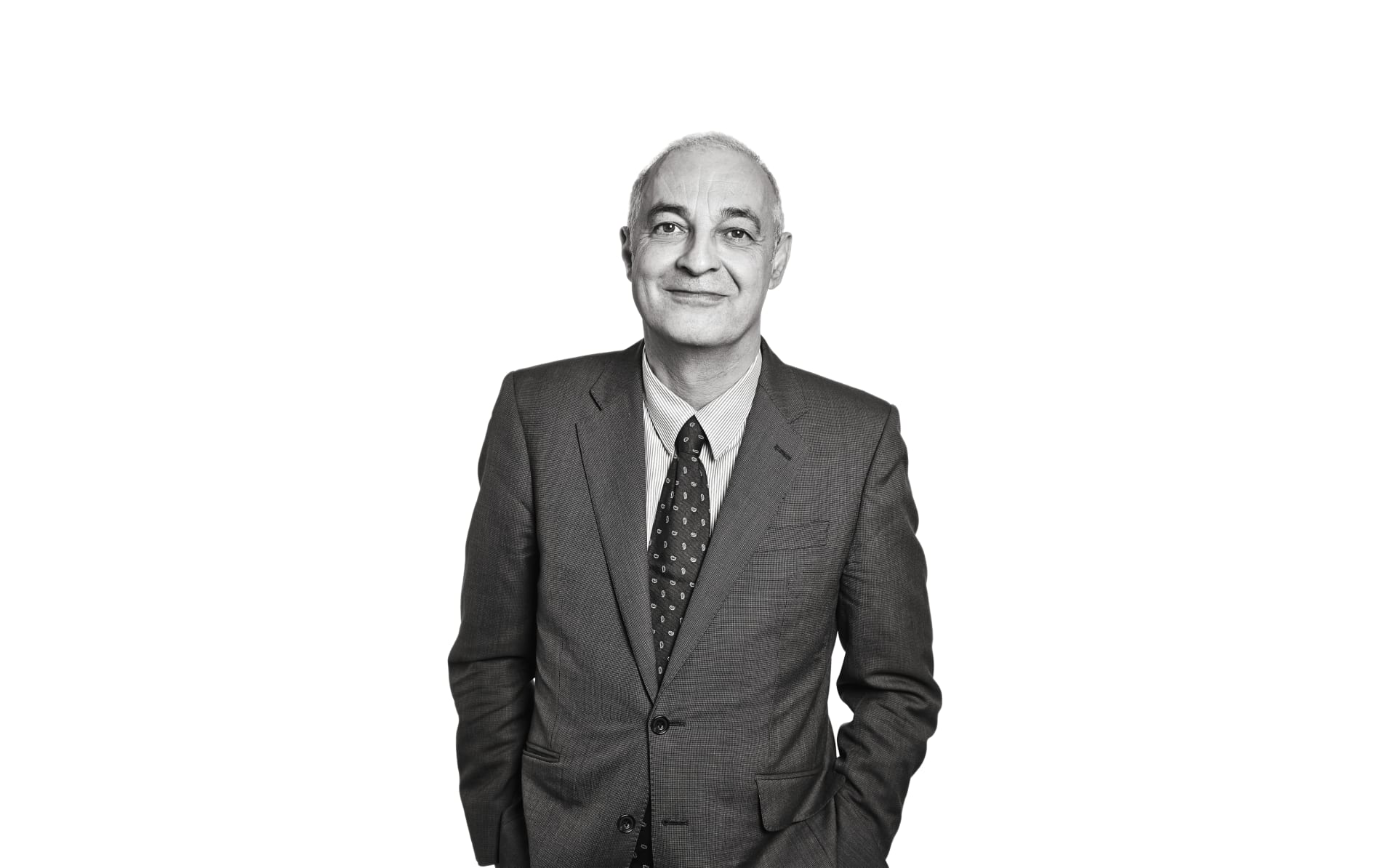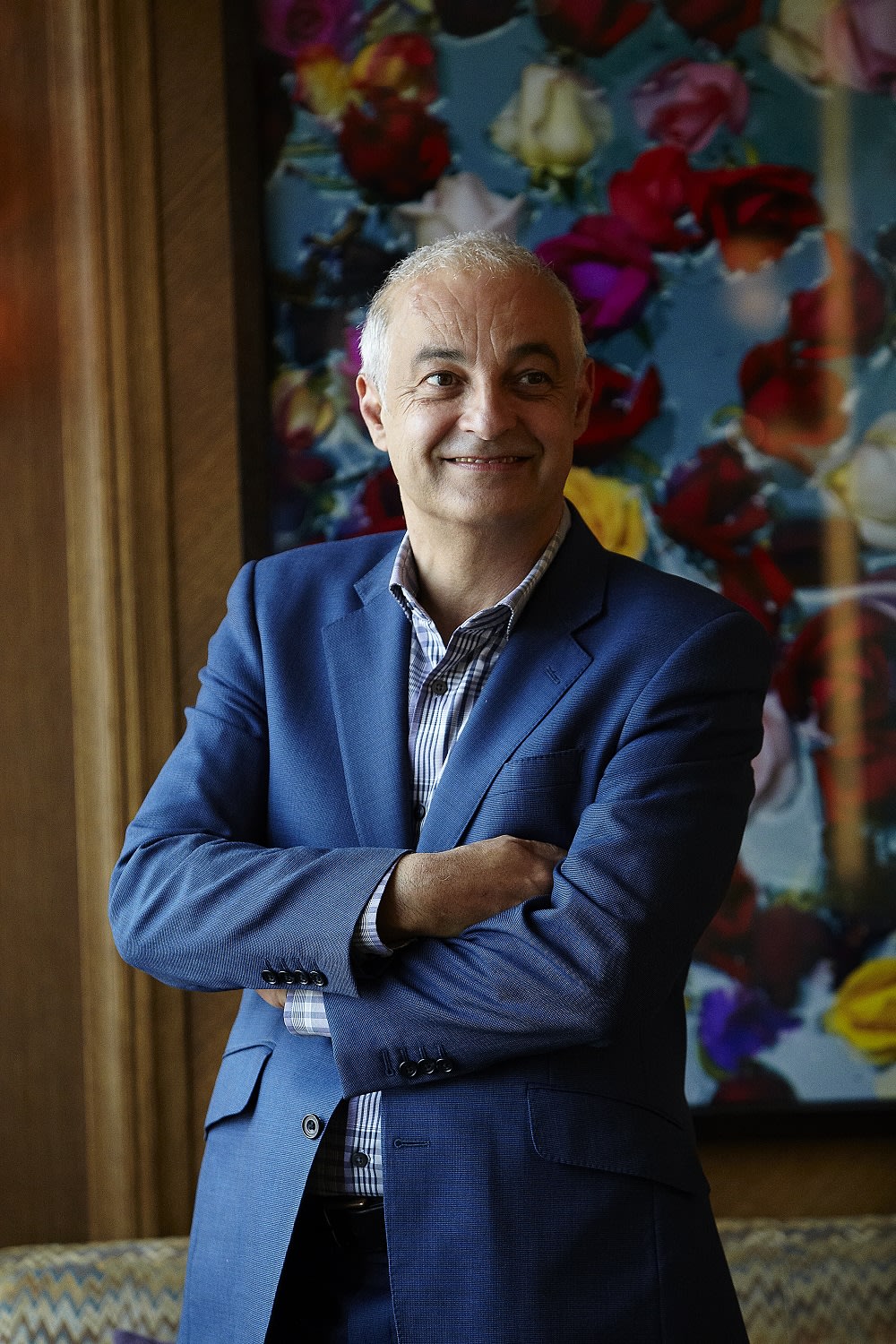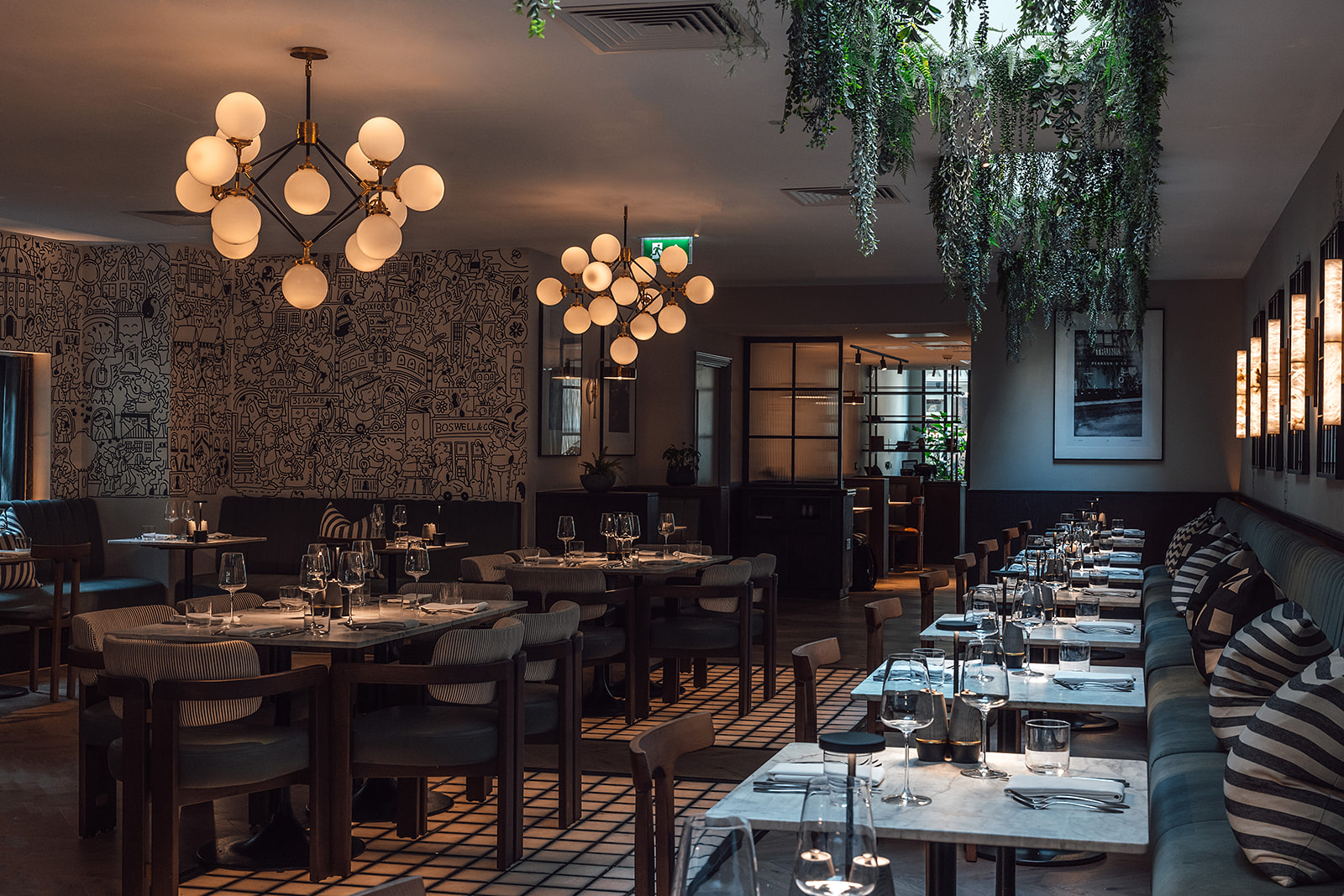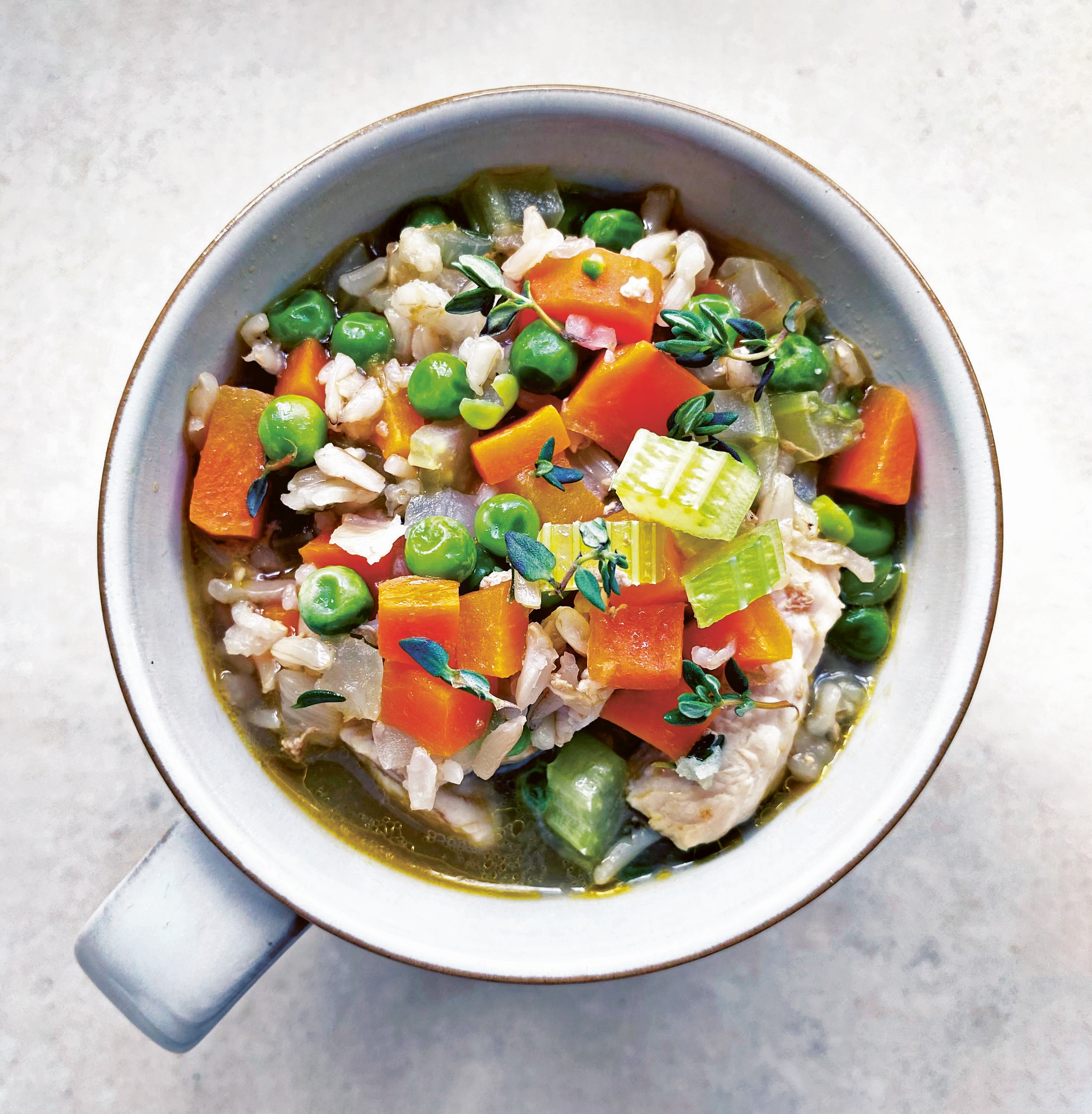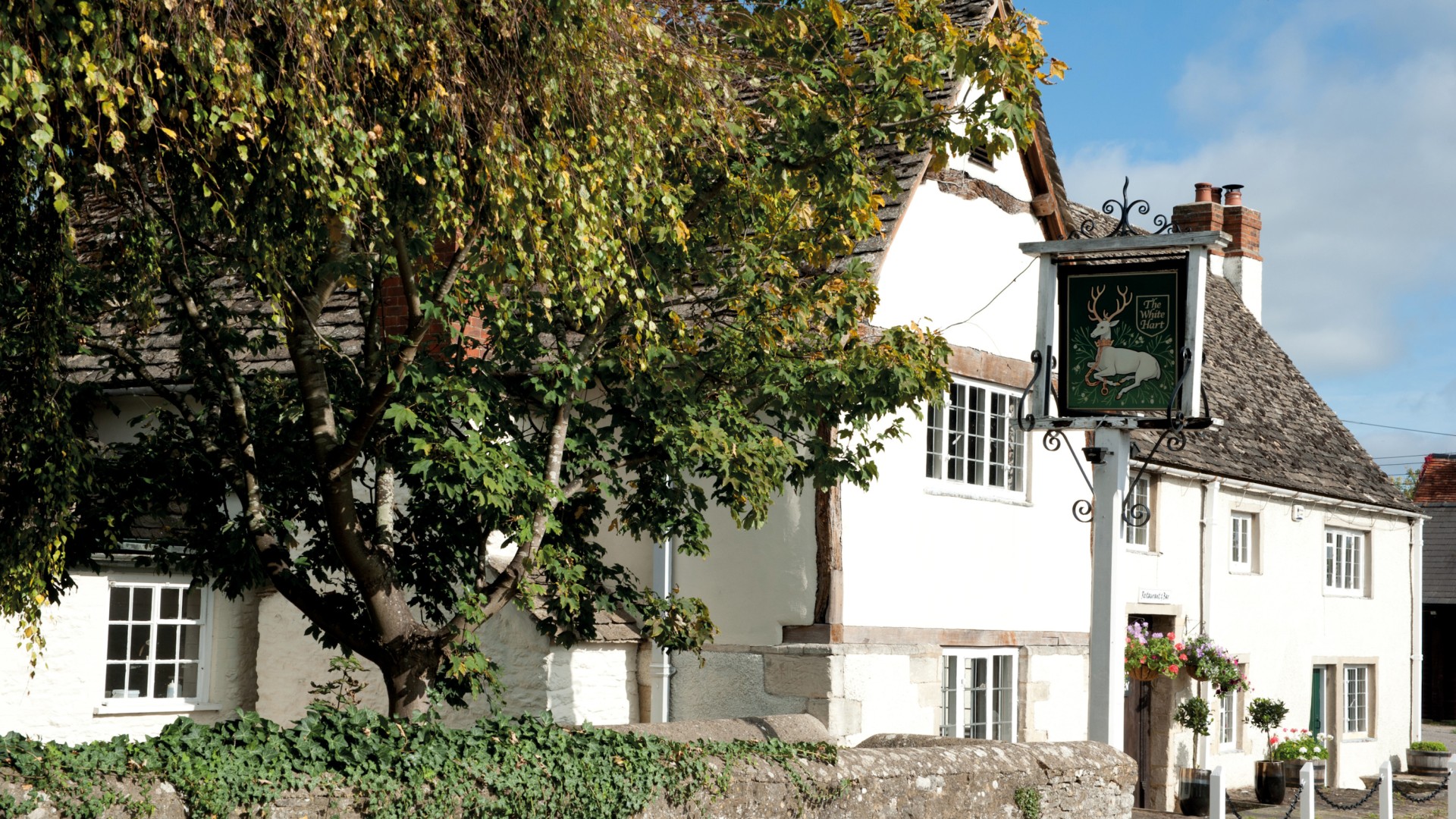Fernando Peire is the first person to grace this regular feature, where we take you into the minds and careers of the hospitality industry’s best and brightest. As Oxford’s High Street will soon become the newest place to host a restaurant of The Ivy Collection, it only seemed fitting to speak to Fernando, who was Maitre d’ at The Ivy on West Street in Covent Garden for eight years during the 90s. After an interim during which, among other things, he established the Frontline Club in Paddington, he returned to become Director of The Ivy Club, a private members club above the iconic London establishment. Here he is in conversation with Toby Hambly.
Hospitality is an industry where mentorship is important. I’ve read of your time at L’Escargot –
Oh yes, but I must tell you it’s not the famous L’Escargot.
No, it was named after a racehorse wasn’t it?
That’s right! It was named after a Grand National winner from 1975. L’Escargot was this little neighbourhood restaurant in North London. The patron was just fantastic and he was a great mentor of mine. His name was John Morley and sadly he died at the age of 53. It was a terrible loss to me because he was somebody I just loved talking restaurants with. Plus, my dad was not home very often – he was a bit of an absentee dad – so it was great to have John to confide in. He was definitely a mentor. He was the guy who made me understand that hosting a restaurant for an evening is actually throwing a party.
What did he teach you about how to generate that atmosphere?
I just watched him and what I saw was that when people walked through the door he’d say, “John! How great to see you. Hilda! Gosh, you look fabulous!” He’d give her a kiss, lead them to their table – he might pull up a chair and sit with them – then he’d say, “Oh, I’ve got something to show you,” and he’d go into the kitchen and come out with a live lobster and say, “Look, these are the best lobsters I’ve ever had – you can have one as a starter, or perhaps a main?” So he was treating people as if they were his best friends; as if he was entertaining them at home. That is increasingly rare these days.
Can you describe what happened to restaurants in London in the 90s?
London restaurants really started to change as a result of the 80s boom – what was often referred to as the ‘Lawson Boom’ – which then led to a spectacular bust. By the time the bust came, we had a new restaurant language perpetrated by the likes of Kensington Place, The River Café, Alastair Little and Mark Hix. So just as we had Britpop and the Young British Artists we also had the modern British food people. So we kind of – and this is my personal view – put a claim on a certain bastardisation of European food. We subtly introduced Indian, Japanese or Chinese into the dishes too and reinvented the French and Italian dishes so they weren’t quite so stodgy. That’s modern British food for me, and it’s stuck. It’s only got better and better.
When you’re in charge of an institution like The Ivy that’s so widely loved – how do you balance the obligations of staying relevant with that of keeping regulars happy?
That’s a very good question.
I know there was some controversy around the removal of the Bang Bang Chicken from The Ivy’s menu.
There was a riot! There was literally a campaign in Campaign. One thing I noticed at The Ivy when I joined, and during my first eight years there in the nineties, was how Chris Corbin, Jeremy King and Mark Hix between them kept The Ivy in step with the zeitgeist. Now that’s not to say that all of a sudden we went totally Asian – no – but when suddenly a Mexican restaurant became a little bit fashionable, we took a good idea from them – that was clever I thought. What I identified when I came back in 2007 was that there had been a period where the restaurateurs had gone, and now The Ivy was just repeating itself. I distilled that there were classic dishes within our repertoire that should never go away; that could be reinvented and stay for the next generation. I brought Gary Lee in as the chef because I felt he was the most artistic of our chefs at the time. That’s what I needed, a little bit of artistry to tweak what we had. He was quite brilliant at it.
Now that you run The Ivy Club upstairs, how have those lessons transferred?
Well for me, The Ivy Club is a complete distillation of everything that made The Ivy great in the 90s, and that’s a combination of famous and not-famous people, but all like-minded. People who don’t come out to show off, but to enjoy themselves and maybe have a little gossip – that’s encouraged. What’s not encouraged is bothering other people. At the Ivy Club there is this nucleus crowd which started with theatre producers. I don’t think there’s one important theatre producer in this town that is not a member of my club. Consequently, the actors come here too, the agents, the financiers – that’s what gives you the glamour that people talk about. Somebody like Stephen Daldry is going to come in with Nicole Kidman once in a while and that’s the kind of stuff the press likes to talk about.
What do you think about TripAdvisor?
TripAdvisor is almost worthless because it’s just too noisy. It’s like a radio station that is constantly out of tune on medium wave but the volume has been turned up really loud. For me, anybody that threatens you with, “I’m going to put a bad review on TripAdvisor” – forget them, switch it off. If I read 100 reviews of The Ivy, I guess I might learn a bit, yes, but would I be able to tell the difference between one restaurant and another by reading 100 reviews? I really don’t think I would. Also, what one person is looking for is not necessarily what I’m looking for. I’m slightly out of kilter with the critics as well, because they talk a lot about the food and for me, not enough about price, lighting, table size, comfort – these things rarely get mentioned. 99% of restaurants in London look like they were designed by the same person, and I just know by looking at a photograph that I’m not going to be able to hear myself speak on a Friday night in that restaurant. Critics talk about the food, and restaurants aren’t about food; they’re about people. Food’s obviously part of it, but people aren’t going to restaurants because they’re hungry, they’re going for many more things than hunger.
Fernando’s Dos and Don’ts of Great Service
Welcome
One of the first things I teach my staff is to treat customers like you’re expecting a good friend for dinner. It doesn’t mean overstep the mark and say, “how you doing mate?” – but look like you’re expecting them and delighted to see them. That’s the essence of hospitality for me.
Keep the Buzz
When customers are chatting and they’re looking at each other in the eye and are focusing on their conversation, don’t come up and say, “sorry to interrupt, but here are two canapés” – no, no. Suddenly you’ve destroyed the whole energy of the conversation. Wait until there’s a pause, until they’ve caught your eye and there’s a pause. That’s very important to me, because it can destroy the atmosphere in your restaurant. If The Ivy has a buzz at all it’s because people are allowed to talk unfettered – simple but true.
Chain of Command
When I go to a restaurant, I like to know who is in charge on the floor. It’s been noticeable in the past or, as happened the other day, the last person to have contact with me was taking payment at the table. I hadn’t seen this guy all evening, I never saw the manager either, and it was very disappointing. More or less everything that could have gone wrong went wrong. They took an hour to give me undercooked lamb, we had to ask for bread, olive oil, salt and a wine list and it was 9.30 on a Monday night. I would have liked to know who was in charge that night, because I’d have certainly called them over.
No Mr Roboto
Another thing I teach my staff is to not be robotic. Customers eat out a lot and they can tell the difference between someone who’s being a robot and somebody who’s an individual, and I want all of my staff to come across as individuals. So even though we are The Ivy and at the epicentre of an aggressive, expensive, fast city, I and my team run it as though it’s a family restaurant.
The Ivy Oxford Brasserie is opening November 5 – theivyoxford.com
Fernando is director of The Ivy Club in the heart of the West End.

